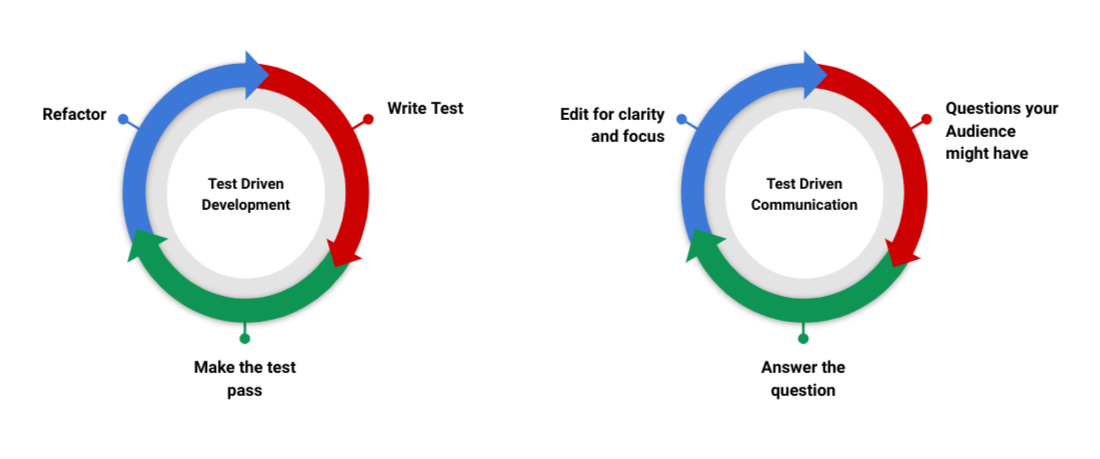Target Audience
Engineers transitioning into Product Management and PM’s early in their career
Background
I was a software engineer for 8 years before I transitioned into product management 4 years ago. Early in my career I realized that PM’s need broad set of skills to succeed and it is not possible to be good at everything. Good PM’s know their strengths and rely on other smart people around them to get things done. I decided that I want to be good at crafting a product strategy and driving execution. Every time someone told me I could have done a better job in communicating, I always responded by saying I’ll have an EA after I become a director and I’ll delegate this responsibility. Boy, I was wrong.
What changed my mind
I observed that PM’s who write effectively were able to have greater Impact for the following reasons
In large companies, you should leverage the system (stakeholders, processes and tools) to work for you. A well crafted document will be referred to and discussed even when you personally can’t be in the room. This builds your brand and creates opportunities to maximize your impact.
It helps you bring your team along. Your plans for world domination can’t be accomplished if your team doesn’t make everyday decisions that are consistent with your product strategy. Unfortunately, you won’t have time to make every decision. Writing down your principles and ensuring your team practices them consistently allows you to scale decision making and Impact.
Shortcut to earn trust with the new team. At some point in your PM career, you’ll be asked to scale and take on additional responsibilities. When you take on a new team, you have no credibility. The best place to start is a being a good note taker and communicating with all stakeholders. This allows you to become the voice of the team and creates conditions necessary to drive your product vision.
How I used to think of writing
I used to think the purpose of writing is to share what I know with everyone. I used to do user research, look at data and dump all of it into a doc and send it to stakeholders. I used to be proud of my insights and analysis. But everyone who read the doc arrived at a different conclusion. This lead to misaligned priorities and missed deadlines.
How I think of Writing now: Treating artifact as a function
If you are familiar with good software engineering practices, you start off by writing a unit test. You start to define expected output for a given input.
Similarly, before you start writing your artifact you have to know inputs and outputs
Inputs - Who are your audience ? What do they know about this topic?
Outputs - What do you want your audience to do after they read your artifact?
Once you know your inputs and outputs, list down a series of questions that you need to answer to help/Inspire/Nudge your audience to take action. Treat each question as a test case.
Once your define your test case, you’d write the minimum amount of code required to pass the test case. Similarly, answer each question as concisely as possible. Most of time a concise answer is a yes, no or a number. Once you have answered this question simply move on to the next question until you exhaust all of them.
You continuously refactor your code to ensure all test cases pass. Similarly after you answer each question, edit other answers to ensure you are staying on point. Don’t hesitate to delete anything that doesn’t help you make your point. Remember, you are not writing to showcase your knowledge or intelligence. You are writing to inspire your audience to take action.
Finally just like you organize your code for readability, organize your artifact so that you answer the most important questions first. Answer any question that might arise after they read the answer to your first question and so on.
Summary
Think of your artifact as a computation that transforms your audience existing world view to a new world view and inspires them to take action. If your artifact meets its desired objectives, It is well written.
I’d like to know how you scaled your impact as a PM? Please let me know in the comments.




That's a great insight. Thanks for sharing Tejas!